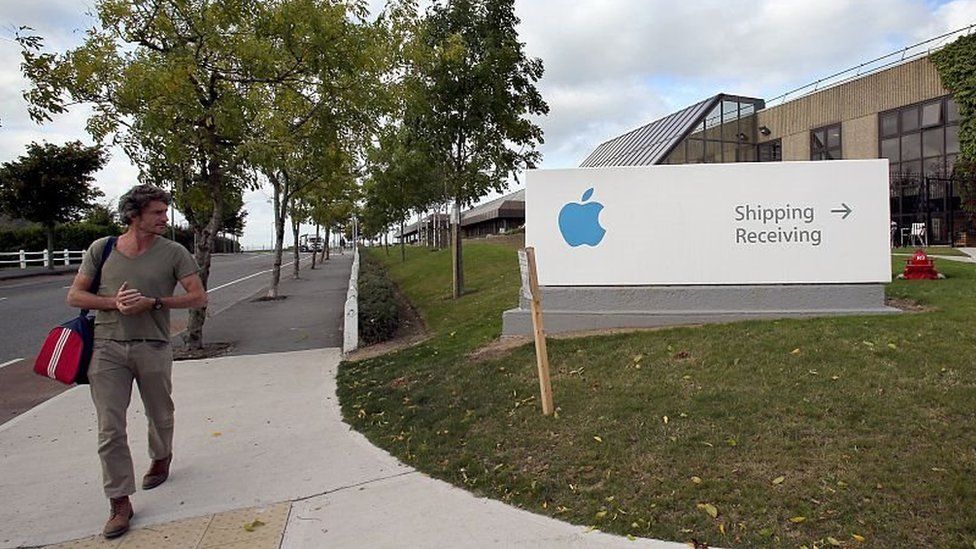EU takes on Apple, Ireland and the United States
- Published

How should we tax giant technology companies that are able to move money, operations, and often digital goods across borders with increasing ease?
That is at the heart of today's European ruling.
The European Commission believes the time has come for radical action to force multinationals to pay more and stop governments competing to offer them special treatment. But it faces battles on many fronts.
First, against governments such as Ireland, Luxembourg and the Netherlands, which face losing the advantages that attract foreign investment. They resent what they see as interference in their right to set their own taxes. Even the promise of a huge boost to its tax revenues does not seem likely to placate the Irish government.
Then, of course, there is the might of Apple and its army of lawyers and lobbyists. The technology company seems confident that the commission is acting way beyond its own rules in interpreting tax deals - and by the way, Apple denies it got anything that wasn't open to others - as illegal state aid.
It has been pointing journalists towards a recent article by a legal expert suggesting that the commission's use of state aid as a tool to drive tax reform "threatens to undermine the rule of law".
And then there is the United States government, which last week got its retaliation in first by warning that the EU was trying to become some kind of global tax authority, and was discriminating against American firms.
Now, the US would also like Apple to pay more - but only to its own coffers.
Apple's global manufacturing activities and its estimated $215bn (£164bn) cash mountain have become election issues in 2016.
So, the European Commission faces some formidable opponents and may find itself entangled in litigation and diplomatic disputes for years. But it may well believe that it has one powerful lobby behind its campaign - European consumers.
At a time when globalisation and arrogant multinationals are both going right out of fashion - and governments are still imposing austerity policies - the commission believes that giving Apple a bloody nose will win bravos rather than boos from ordinary people who have to pay their taxes.
- Published30 August 2016
- Published30 August 2016